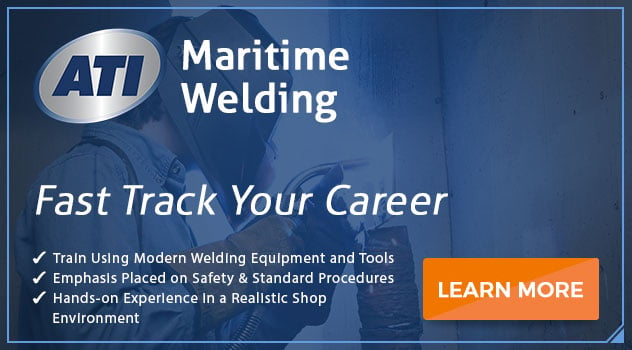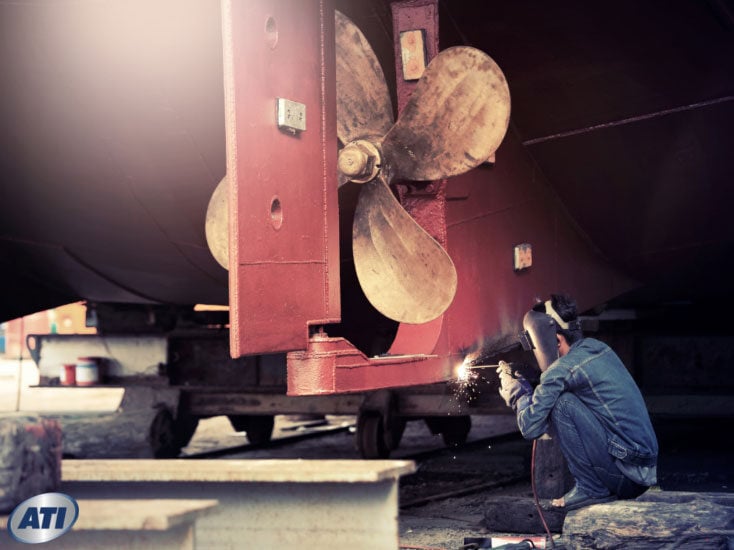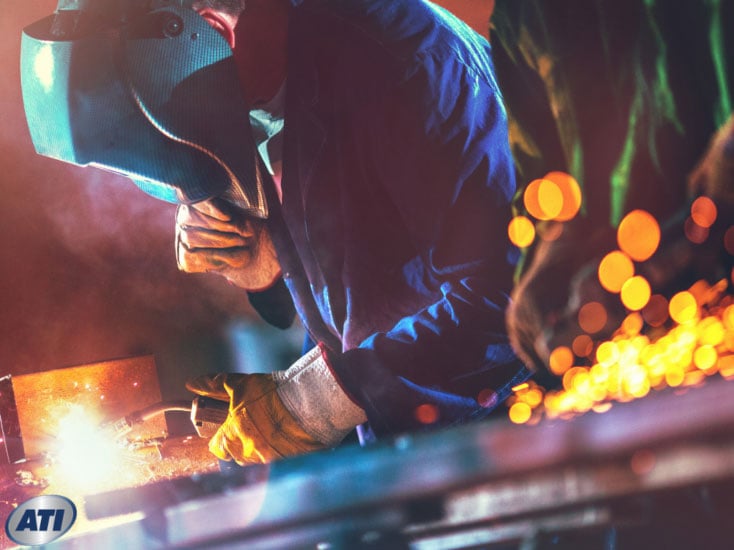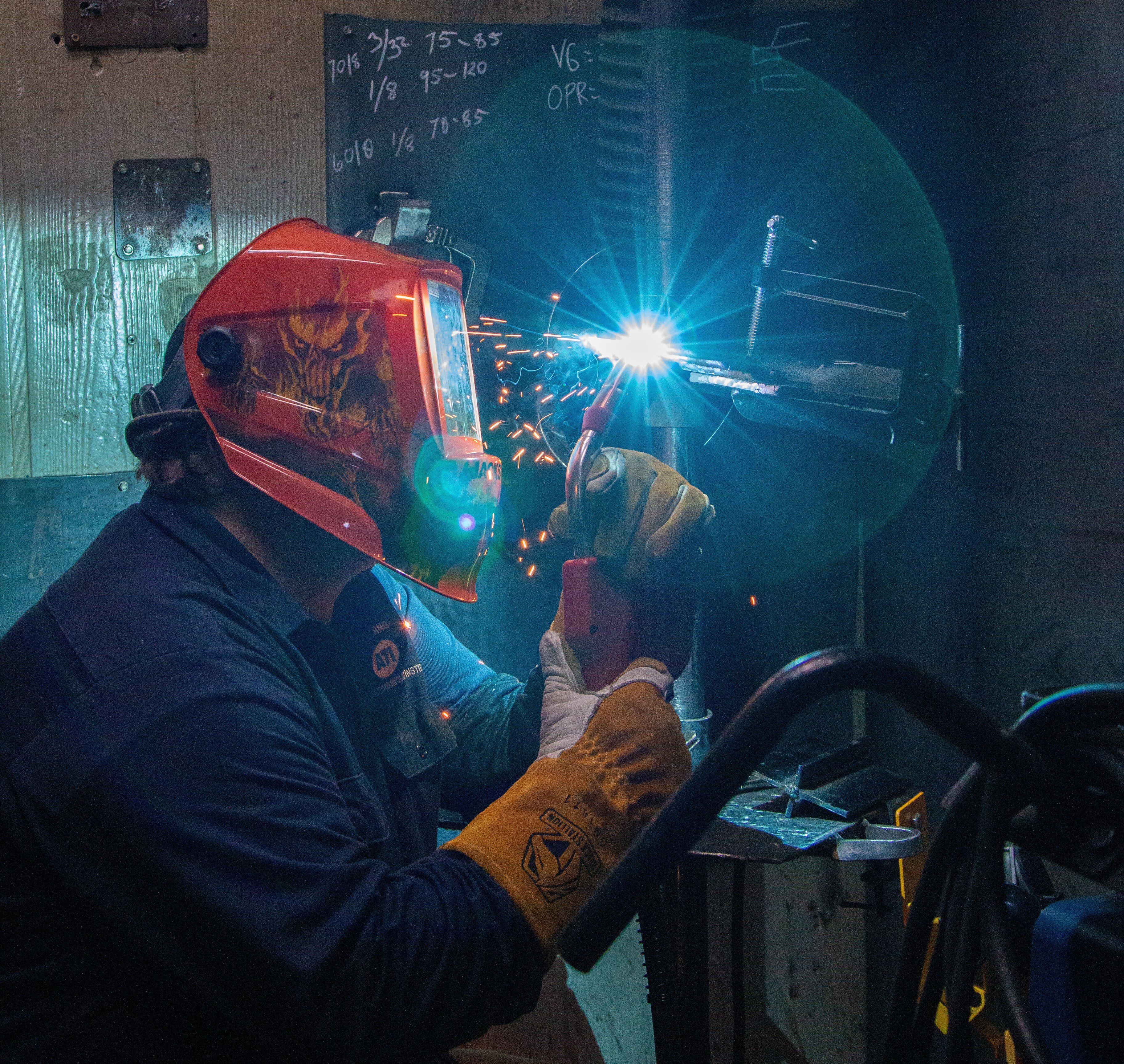What is Maritime Welding and Why is it Important in Hampton Roads?
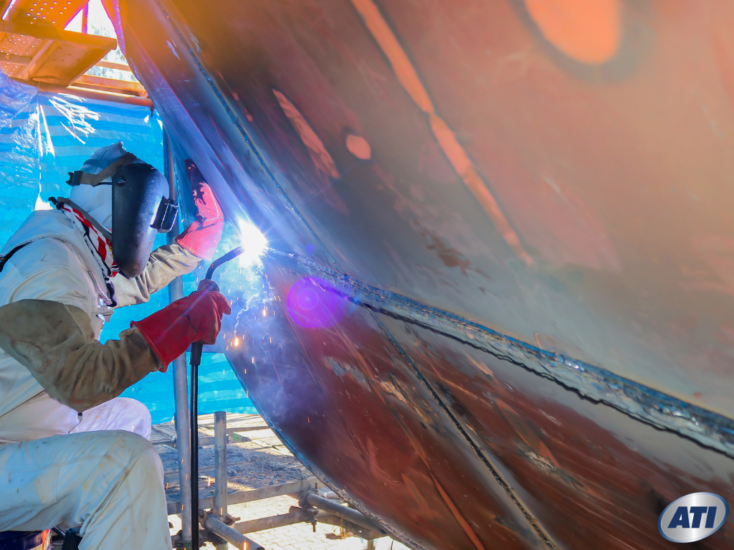
If you’re looking for an audacious career that further gives you the chance to travel and gain career satisfaction, maritime welding may be an option for you. Maritime welders play an important role in shipbuilding and repair process. Job opportunities in this field could allow you to work all over the world, performing welding on barges and ships in coastal areas.
What is Maritime Welding?
Welding is a versatile skill used by a variety of businesses. Quite simply, this art involves joining metals or thermoplastics together with the use of heat. While maritime welding can also denote the job done by a commercial welder-driver on offshore oil rigs, in most instances it defines a job required in building both boats and ships and repairing their metal parts and structures. So, whether it’s deep within the hull of ocean liner or on an offshore oil rig, maritime welders are always where the action is. Welders in this field bring the training and skills needed to keep oil rigs, shipyards, and other marine-related facilities in the right working conditions.
Duties a Maritime Welder Could Be Expected to Fulfill
Career possibilities for a maritime welder are vast, ranging from barge welding, ship fitting, and ship welding, to underwater and offshore welding. Some duties of a maritime welder include:
- Punch pressing and pipe forming using bevellers and notchers
- Using chemicals, torches, or mechanical devices to cut and shear metal sheets, tubes, and other components as per the design specifications.
- Forming secure metal structure and components by applying welding techniques such as applying gas and submerged arc.
Welders working in larger shipbuilding and repair companies usually specialize in one area. But based on the employer’s discretion, a welder may be required to execute other duties and special projects.
Maritime Welding in Hamptons Road
Hamptons Road is home to many businesses that depend on welders to produce goods equipment and goods needed in the maritime industry, making the need for trained welders high in the vicinity. The area is one of the biggest natural harbors and has great shipyards and a large military presence in the form of navy bases and installations.
The unique location also makes it ideal for shipbuilding and repair services. For this reason, some of the largest firms dealing with maritime vessels have their headquarters in the area. And because of the shipyards and the coast guard and naval presence in Hamptons Road, Virginia, there is a constant need for maritime welders.
Benefits of Formal Education to Those Who Want to Be Welders
Because maritime welding can be dangerous, it’s not a great starting place for amateurs. Individuals interested in joining this field need to go to a welding school and become certified. Navy bases and shipyards employ only highly trained and certified welders.
In addition, they test the quality of work that job candidates produce before they are hired. While you could acquire maritime welding skills on-the-job, it’s sometimes difficult to find a company willing to train an individual who doesn’t know the first thing about welding. Also, welding jobs are often time-sensitive and companies would want to hire someone who can get the job done efficiently and won’t have to deal with frustrating beginner’s mistakes.
A college program gives you the practice, the finesse, and the background you need to more easily attain certifications and entry to your welding career. One of the main benefits of formal education is that you would have access to a wide assortment of modern welding tools and equipment.
You’d also gain hands-on experience in a setting where you get highly qualified instructors who demonstrate various proficiencies. With the danger involved in the maritime welding field, you’ll be taught good safety procedures to follow in the navy bases, shipyards, and any type of repair facility.
Maritime welding positions in Hamptons Road are so desirable and you can expect a lot of competition when applying for open positions. A degree from a welding school can set you apart from other job candidates, which might give you the advantage of landing your dream job.
In addition to equipping you with the knowledge and skills necessary to get an entry-level job in maritime welding, earning a degree also allows you to get a broader picture of the career options available in the welding industry. You’ll get connected with students from across the country and will meet experienced professionals who can give you mentorship and insight into what it might be like to work in various industries, and where to find the best jobs.
Start Planning Your Adventure Today
Are you ready to get started building your dream career? Consider Advanced Technology Institute’s Associates in Occupational Science degree in Maritime Welding Technology with Service Management. For more information, connect with a helpful admissions counselor today.
Industry Knowledge
Welcome to the Advanced Technology Institute's Blog, your resource for industry insights and discussions on technologies shaping the future of automotive, heavy vehicle, hvac, welding, and other related career paths.
Explore how ATI's curriculum and hands-on learning opportunities can propel your career in the tech-driven world.
